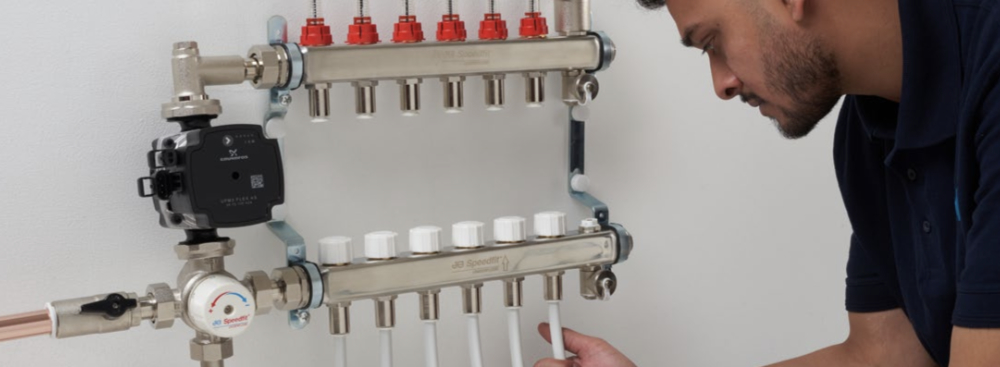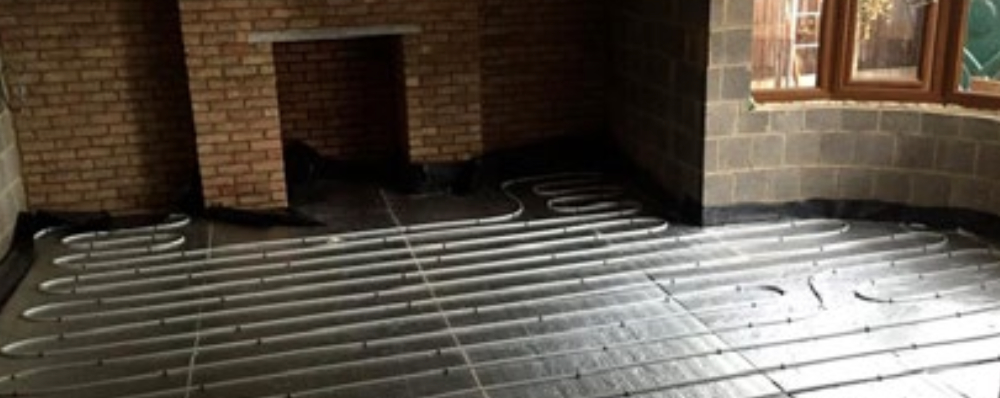Plumbing and heating for successful retrofit and renovation
Contents |
[edit] On the road to net-zero
As the UK progresses on the road to net-zero, this article explores the importance of retrofit and renovation – and why heating and plumbing installers have a leading role to play.
There are more than 30 million homes in the UK and, together, they are responsible for around a fifth of all the country’s emissions, with the majority – around three quarters –generated by home heating. This makes the decarbonisation of homes key to overarching ambitions of achieving net-zero by 2050.
In practice, this places installers at the heart of activity to curb emissions and improve the efficiency of homes – both through the adoption of low-carbon systems and innovative plumbing and heating technologies. Here, we will consider the scale of the challenge that lies ahead and the role of plumbing and heating professionals in moving the UK towards a greener future.
[edit] Why the answers lie in retrofitting and renovation
With an average of 170,000 new homes being built each year in the UK, the reality is that the majority of the homes people will live in by 2050 are already built. With millions of these properties already falling behind in terms of energy efficiency, the focus must be on retrofit and renovation to bring them up to standard.
Millions of British homes currently do not meet the requirements for Energy Performance Certification ‘C’. The impact of this rating is two-fold. Firstly, occupants of under-performing buildings may face higher energy bills alongside reduced levels of comfort. Secondly, to compensate for a property’s heat loss, heating systems will likely be working harder and having a greater negative impact on the environment.
In practice, ensuring existing homes meet EPC ‘C’ standards is essential for the UK to achieve its net zero ambitions. To achieve this, the renovation of these properties and the retrofitting of effective plumbing and heating systems – from underfloor heating through to heat pumps – to improve efficiency and reduce heat loss, will put the UK on a more sustainable footing.
[edit] The role of installers and the solutions facilitating retrofits
To make the vision of a more sustainable future a reality, installers will play a critical role. Working directly with property owners, plumbing and heating engineers are the experts on the ground, assessing properties to identify the most suitable solutions, and installing them correctly to deliver the greatest impact.
With millions of homes across the country in need of energy efficiency upgrades, tried, tested and trusted solutions will be used heavily to unlock the best results. This approach allows homes to benefit from proven systems, minimising the disruption of adoption while delivering long-term results.
Underfloor heating (UFH) is one solution that can be installed to improve efficiency and comfort within a property. Compatible with new and old heat sources, UFH operates effectively at much lower temperatures than traditional radiator systems to reduce energy demands while sufficiently heating a home. Its positioning beneath floors also creates a much larger surface area, enabling UFH to heat spaces quickly and more effectively, improving comfort and efficiency.
For renovation projects, low-profile UFH systems – such as JG LowFit – are a proven solution, enabling installation over existing subfloor structures. For screeded floor applications, castellated panels support easy installation, whereas for timber floors, foil and mesh panels can be used to run pipes efficiently. These options equip installers with the systems and versatility to upgrade home heating systems and unlock greater levels of efficiency.
Aside from retrofitting sustainable heating systems, installers can also use pipes and fittings that contribute to greater levels of system efficiency. Plastic solutions, such as those within the JG Speedfit range, can strengthen plumbing and heating systems to unlock greater performance, while fewer connections reduce the potential for problems such as leaks – which can compromise overall efficiency. Featuring innovations such as push-fit technology, these solutions can also reduce the complexity of upgrading systems, simplifying jobs for installers.
[edit] The future of home heating
While installing more sustainable technologies will move homes towards a greener future, it is important to keep in mind what the future of home heating could look like. Here, installers can depend on manufacturers to lead the way through product innovation, ensuring systems and solutions comply with changes to the country’s infrastructure.
Today, more than 80% of homes are connected to the gas network. To achieve net-zero by 2050, a shift away from gas to more sustainable energy sources will have the greatest impact overall – and the transition is already underway.
Thousands of homes have already adopted heat pumps, equipping them with a more sustainable heat source and cutting emissions at the point of use. Alongside the uptake in heat pumps, hydrogen looks set to replace natural gas in the coming years, with trials taking place in various locations across the UK. In the short-term, a natural gas-hydrogen blend is anticipated to cut emissions by reducing gas consumption by around 20%.
While these broader changes will have a direct impact on homes in the decades to come, they are just one part of the solution to a greener future. The changes being made by installers today – from installing UFH through to maximising system efficiency – are delivering tangible benefits for homeowners, including greater levels of comfort and cost efficiency.
To discover the plumbing and heating systems that are underpinning home efficiency for the future or discover how RWC are supporting installers through its family of brands including JG Speedfit, JG Underfloor and Reliance Valves, visit rwc.com/uk.
This article appears in the AT Journal issue number 149, Spring as 'The role of plumbing and heating in successful retrofit and renovation' and was written by Richard Bateman, Product Marketing Manager for Plumbing and Heating, RWC.
--CIAT
[edit] Related articles on Designing Buildings
- All you need to know about TMVs, PRVs and the Tenant Valve..
- Building services.
- Building services engineer.
- Click and lock flooring.
- Cooling.
- Corrosion in heating and cooling systems.
- Heating.
- Heat pump.
- Homeowners lack knowledge or confidence in heat pumps.
- Laminate flooring.
- Opportunities for underfloor heating as world radiator market cools.
- Pipework.
- Radiant heating.
- Radiator.
- Radiation.
- Rethinking the design and specification of ground floors.
- Screed over underfloor heating.
- Smart HVAC Controls Market.
- Specifying efficient water systems for residential new build developments.
- Thermal comfort.
- Tiled floors with underfloor heating: A guide to minimising and repairing cracking.
- Transforming spaces: the power of underfloor heating combined with smart technology.
- Types of heating system.
- Underfloor heating.
- Underfloor air conditioning at London Grade II listed landmark.
Featured articles and news
A case study and a warning to would-be developers
Creating four dwellings... after half a century of doing this job, why, oh why, is it so difficult?
Reform of the fire engineering profession
Fire Engineers Advisory Panel: Authoritative Statement, reactions and next steps.
Restoration and renewal of the Palace of Westminster
A complex project of cultural significance from full decant to EMI, opportunities and a potential a way forward.
Apprenticeships and the responsibility we share
Perspectives from the CIOB President as National Apprentice Week comes to a close.
The first line of defence against rain, wind and snow.
Building Safety recap January, 2026
What we missed at the end of last year, and at the start of this...
National Apprenticeship Week 2026, 9-15 Feb
Shining a light on the positive impacts for businesses, their apprentices and the wider economy alike.
Applications and benefits of acoustic flooring
From commercial to retail.
From solid to sprung and ribbed to raised.
Strengthening industry collaboration in Hong Kong
Hong Kong Institute of Construction and The Chartered Institute of Building sign Memorandum of Understanding.
A detailed description from the experts at Cornish Lime.
IHBC planning for growth with corporate plan development
Grow with the Institute by volunteering and CP25 consultation.
Connecting ambition and action for designers and specifiers.
Electrical skills gap deepens as apprenticeship starts fall despite surging demand says ECA.
Built environment bodies deepen joint action on EDI
B.E.Inclusive initiative agree next phase of joint equity, diversity and inclusion (EDI) action plan.
Recognising culture as key to sustainable economic growth
Creative UK Provocation paper: Culture as Growth Infrastructure.

























